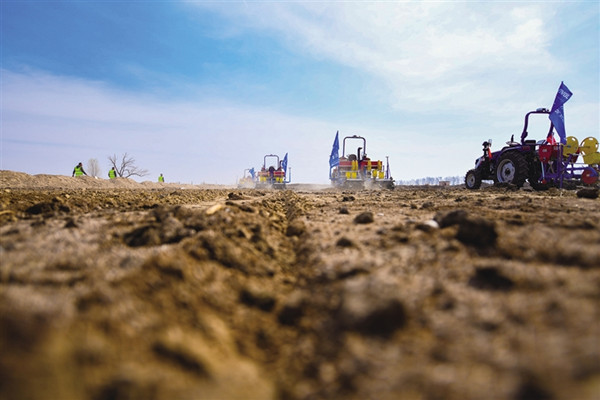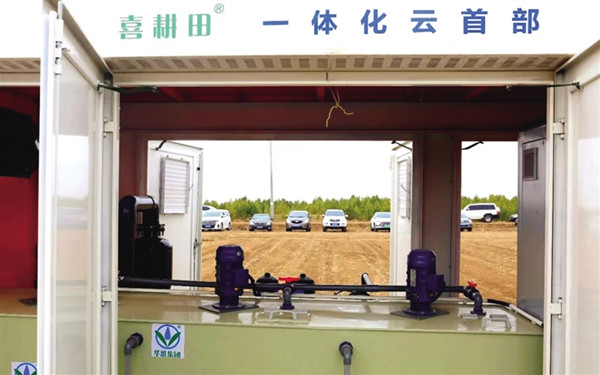Hohhot embraces new productivity in high-standard farmland development

Seeding machines equipped with Beidou navigation automatic assisted driving systems are in operation. [Photo/Hohhot news network]
Hohhot, capital city of North China's Inner Mongolia autonomous region, is actively accelerating efforts to enhance its high-standard farmland development, transforming disorganized fields into productive and unified agricultural zones. This initiative is not only improving local agricultural conditions, but is also embracing innovative technologies to boost productivity.
In Niangetu village, where the high-standard farmland project is underway, well-organized farmlands are now taking shape. Advanced machinery is efficiently leveling land, backfilling soil, and refining embankments. The introduction of the "Xigengtian Integrated Cloud System" is injecting new vitality into this agricultural transformation, offering smart water and fertilizer solutions that will lead to significant efficiency gains.
This intelligent system improves water utilization by 30 to 40 percent and fertilizer utilization by 20 to 30 percent, which will result in better crop quality while also saving resources and labor. Liang Hai, director of the Inner Mongolia Branch of the Huawei Controlled Agriculture (Rural Vitalization) Planning and Design Institute, highlighted the system's benefits in enhancing crop yield and reducing costs through precise operations.

The "Xigengtian Integrated Cloud System". [Photo/Hohhot news network]
Tumd Left Banner has been a frontrunner in high-standard farmland construction, focusing on agricultural water conservation and adopting the drip irrigation system. This approach has saved substantial amounts of water per acre and improved the soil quality significantly.
In 2023, Tumd Left Banner expanded its high-standard farmland by 60,000 mu (4,000 hectares) and improved 20,000 mu of saline-alkali land. This year, with 95,400 mu of new projects underway, the region aims to enhance its maize yield through comprehensive measures like mechanical cultivation, drip irrigation, organic fertilizer application, and soil conditioning.







